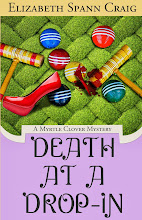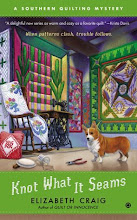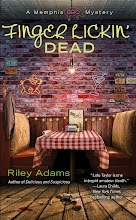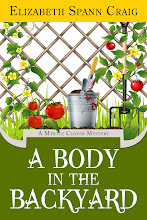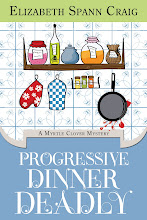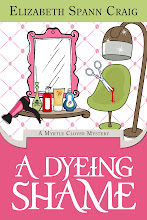by Elizabeth S. Craig, @elizabethscraig
Below are the writing-related links I tweeted last week.
The Writer’s Knowledge Base search engine, designed by software engineer and writer Mike Fleming, makes all these links (now over 12,000) searchable.
 Sign up for the free monthly WKB newsletter for the web's best links and interviews:http://bit.ly/gx7hg1 .
Sign up for the free monthly WKB newsletter for the web's best links and interviews:http://bit.ly/gx7hg1 .
Story structure: the 1st plot point: http://bit.ly/xIbywR @rebeccaberto
7 Lessons For Writers From Leonardo Da Vinci: http://bit.ly/AxytcE @thecreativepenn
20 things you need to know before you self-publish: http://bit.ly/wdwh3E @guardian
Round out your characters with contradictions: http://bit.ly/wylldQ @dirtywhitecandy
Make an Image become a Symbol: http://bit.ly/ysA1qY
Will an agent ever recommend self-pub? http://bit.ly/AwlgbQ @rachellegardner
Tips for finding your writing voice: http://bit.ly/scghYa @rebeccaberto
Starting Off a Book in Unfamiliar Territory: http://bit.ly/wigsI2 @janice_hardy
Tell a story only you can tell: http://bit.ly/wmTONh @bookemdonna
3 tests for the opening scene of a romance: http://bit.ly/ygeayA @teresamedeiros
Balancing reason with our love for writing: http://bit.ly/xDfCGT @WomenWriters
7 Negative Prefixes: http://bit.ly/zpuNU5 @writing_tips
How 1 writer learned to write: http://bit.ly/A2bfR9 @KMWeiland
12 Twitter Tips for Writers: http://bit.ly/y1uoOa @ajackwriting
When Book Publicists Go Too Far: http://bit.ly/xdpfly @pubperspectives
Author Blogging 101: Video Interview Tools & Tips: http://bit.ly/wx5fyI @JFBookman
The Value of Ambition: http://bit.ly/AzhMai
Getting back in the writing groove: http://bit.ly/yZUG40 @pepperbasham
Motivation and characterization: http://bit.ly/Aro0un @Dragonmuse
How to Keep Up Your Writing When You're Sick: http://bit.ly/Awvmnb @writeitsideways
Why Isn't Literary Fiction Getting More Attention? http://bit.ly/zDbMip @AprilLineWriter for @Janefriedman
Basic manuscript formatting: http://bit.ly/A7tIqy @behlerpublish
89 Book Marketing Ideas: http://bit.ly/wQShjI @Caitlin Muir
Word Count For Writers: To Count or Not to Count: http://bit.ly/AkG0tV @epubworld for @thecreativepenn
As demand for e-books soars, libraries struggle to stock their virtual shelves: http://bit.ly/wsnN6X @passivevoiceblg
Don't present written proposals to agents at conferences: http://bit.ly/zvt79Q @bookendsjessica
Breakdown of the story structure of a middle grade mystery: http://bit.ly/wKa2La @laurapauling
Can Critique Groups Do More Harm than Good? http://bit.ly/xpwwCP @KristenLambTX
A show, don't tell example in dialogue: http://bit.ly/zZJBHs
The first thing you do when you sit down at the computer: http://bit.ly/wxDaCK
Yes, You Do Need a Theme: http://bit.ly/xGZXP3 @LiveWriteThrive
Tips for lending realism to the paranormal: http://bit.ly/wDYUJ8 @lisagailgreen
Writing means many types of beginnings for writers: http://bit.ly/zYYaG3 @eMergentPublish
The Joys of Rewriting: http://bit.ly/xp04yJ @mooderino
Why Use Past Tense? http://bit.ly/wL6TDZ @ava_jae
When to use modifiers: http://bit.ly/z01Gd6 @theresastevens
The difference between sequence and scene: http://bit.ly/wm8KXZ @AlexSokoloff
The Power of Creative Storytelling: http://bit.ly/AajgRL @maxdubinsky for @jeffgoins
Book Cover Design and the Problem of Symbolism: http://bit.ly/yC5GCs @JFFriedman
Getting Through the Editing Process: http://bit.ly/xatvmi @Sarafurlong
Determining if your book is a "hot" property for agents & publishers: http://bit.ly/wyYcgE @rachellegardner
5 Confused Word Pairs: http://bit.ly/AnMvxA @writing_tips
The new author pitch: Show, don't sell: http://bit.ly/zO2Qen
Getting the most from your book's sell sheets: http://bit.ly/yVF5lX @BryanThomasS
Tips for introducing characters: http://bit.ly/z4FgE8 @Janice_Hardy
3 Ways to Use Pinterest for Book Publicity: http://bit.ly/zhnw1o @booksparkspr
1 Important Way for Authors to Get Discovered by Readers: http://bit.ly/xbRu5A @JodyHedlund
10 Tips for a Successful Author Talk: http://bit.ly/A3OB3g @janice_hardy
Getting started with Triberr: http://bit.ly/zfGt7H @JHansenWrites
What Sort of Goals Do You Need? 10 Questions to Ask: http://bit.ly/ybLu8z @CherylRWrites
The Rhythms of Work vs The Rhythms of Creative Labor: http://bit.ly/wNpacN @jkglei
Trying to make your fantasy unique? Try making a twist: http://bit.ly/zQZ1dl @JulietteWade
Themes and Story Premise in Novel Writing: http://bit.ly/wfBh1A
The Role of Google+ in Marketing: Get Googled: http://bit.ly/xeBGoh @candacemountain
The road to epub--Smashwords, KDP, PubIt: http://bit.ly/AbbEZA
Starting out our day with outgoing instead of incoming: http://bit.ly/wBm0gA
Self-Pubbed Author Beware: http://bit.ly/zpqJXW @jakonrath
Tips for writing tension--complex protagonists & escalating conflict: http://bit.ly/y1fksG @JodieRennerEd
Writing Nonfiction: Using Quotations: http://bit.ly/Akb6Gz @KarenCV
Forcing yourself to write a "big idea" instead of the scale that suits your story: http://bit.ly/yUl2UH @sarahahoyt
10 ways to boost your freelance writing income in 2012: http://bit.ly/zKEbRy @michellerafter
Fuel Your Critique Group With Google+: http://bit.ly/AbQrb7 @authormedia
Why Reader Taste Differs from Publisher Taste: http://bit.ly/z2f7ID @jennybent
Reader Reviews and What Not To Do: http://bit.ly/yKDk4g @WendySMarcus
How to prepare for a writers conference: http://bit.ly/zP3xxg @Bob_Mayer
Myers-Briggs: A Tool for Authors: http://bit.ly/AfsiId @FaeRowen
10 tips for writers to keep procrastination at bay: http://bit.ly/xe6Asl @TaliaVance
A report on a free ebook experiment: http://bit.ly/w37Jug @TheresaStevens
Tips for sifting through feedback: http://bit.ly/AvMrzx @WriteAngleBlog
Digital Rights Showdown: HarperCollins v. Open Road: http://bit.ly/Aru8cs @VictoriaStrauss
Correct use of apostrophes: http://bit.ly/xrUJCO @authorterryo
Bookish things for book lovers: http://bit.ly/Am1Uq4 @LitMusings
3 elements of a book title that sells: http://bit.ly/z7Caq7 @beth_barany
Creative Thinking Comes Before Creative Writing: http://bit.ly/x9XyM2 @bob_brooke
Do You Hold E-Rights to Your Traditionally Published Book? http://bit.ly/yLobG1 @PassiveVoiceBlg
Why Amazon's Plagiarism Problem Is More Than A Public Relations Issue: http://bit.ly/z0hoqS @jeffjohnroberts
Description in Fantasy: Finding the Sweet Spot: http://bit.ly/wj1XT6 @AmyJRoseDavis
Poking Dead Scenes With A Stick: http://bit.ly/xjxdnP @Janice_Hardy
How deep is your POV? http://bit.ly/AA0Bd4 @JoannaShupe
Reasons your book isn't selling: http://bit.ly/AaYrAa @DavidGaughran
10 ways to cut costs from your freelance business: http://bit.ly/ymCY1H @michellerafter
Harry Potter and the 3 Types of Heroes: http://bit.ly/wIvUCe @write_practice
Explaining "genre in the mainstream:" http://bit.ly/yLFFox @tordotcom
How to Write a Publishable Memoir: 12 Do's and Don'ts: http://bit.ly/zcL7wF @annerallen
A look at Harlequin contracts: http://bit.ly/w9m3hD @PassiveVoiceBlg
Why playing safe in publishing is riskier than ever: http://bit.ly/xge9zX @dirtywhitecandy
What is Copyright and What Does it Do? http://bit.ly/wxmcpK @DiyMFA
5 Ways Bad Reviews Can Help You: http://bit.ly/wRG0bh @AJackWriting
6 Signs of Description Misuse: http://bit.ly/xa4qnG @LyndaRYoung
2012 tax tips for US writers and publishers: http://bit.ly/x4zbGl @GLeeBurgett
How Unemployment Inspired an Interactive Book: http://bit.ly/wOdl0H @GalleyCat
The value of publicity: http://bit.ly/ACq2aW @JAKonrath
How to Clean Your Blog's Junk Drawer: http://bit.ly/xTbMMl @pushingsocial
12 Evocative Words That Include "Ae": http://bit.ly/x647kl @writing_tips
Remember what really matters..and write: http://bit.ly/wChfbI @amysorrells
Fact-checking matters with fiction, too: http://bit.ly/ArvgoU @JodieRennerEd
Interesting roundup of Digital Book World, esp.the gulf btw. writers & the publishing industry: http://bit.ly/ysf9pP @Porter_Anderson
How to Make Your Book Play Out Like a Movie: http://bit.ly/zXDWFY @JodyHedlund
Book Sales Aren't Everything: http://bit.ly/xAsAkI @selfpubreview
Writing your book's final sequence: http://bit.ly/w3XSol @katepaulk
Found Object Stories: Think Like a Writer: http://bit.ly/zgPrQO
4 Writing Routines You Can Live With: http://bit.ly/yN6BMP @writeitsideways
Worldbuilding--Setting up alternate social parameters: http://bit.ly/ydguht @JulietteWade
Blog Topics: Original or Commonplace? http://bit.ly/xE2HRU @cherylrwrites
Han Solo, Scarlett O'Hara, and Your Characters: What Makes Them Compelling? http://bit.ly/ywO5e7 @KMWeiland for @write_practice
Why our voice and the rhythm of our writing is important: http://bit.ly/xcRnyr @janice_hardy
10 Questions for Publishing CEOs: http://bit.ly/xUdESG @DonLinn
Querying a publisher after you've fired your agent: http://bit.ly/Aw3YFd @bookendsjessica
Authors, Bloggers, and When the Internet Feels Like A Low-Budget Horror Movie: http://bit.ly/w9ThEW @BooksAreMyBFs
How to Remove the OCD from Your Blogging: http://bit.ly/yjbmeI @KrissyBrady for @catseyewriter
How to Add Goodreads to Your Facebook Timeline: http://bit.ly/yLK735 @GalleyCat
The importance of keeping in touch with our readers: http://bit.ly/w8lXne @GoblinWriter
The Skinny on Social Networking: http://bit.ly/xnwVL3 @writersdigest
Read. Write. Repeat: http://bit.ly/wBdFMh @SusanMayWriter
Line editing in action: http://bit.ly/z29PvS @theresastevens
What a teething toy taught 1 writer about branding: http://bit.ly/xi5PKe @Lit_Gal
The Uncertainty Principle: how do writers know if they're any good? http://bit.ly/wyHIDb
The myth of the bestseller: http://bit.ly/Abq5ay @JAKonrath
Publishers Less Optimistic About Digital Books This Year: http://bit.ly/yslZVW @GalleyCat
5 Tips For Social Media Promotion Success: http://bit.ly/y7KWWy @BryanThomasS
Writing for Life: 5 Practical Goals For Writers: http://bit.ly/xx5tRu @thecreativepenn
Coincidence Destroys the Suspension of Disbelief: http://bit.ly/yj6BHn @noveleditor
Coincidence Destroys the Suspension of Disbelief: http://bit.ly/yj6BHn @noveleditor
Lies that Can Poison Our Writing Career: http://bit.ly/zklggd @KristenLambTX
Adverbs: They're Really Not All Bad: http://bit.ly/vZieKi @janice_hardy
97 Ideas for Building a Valuable Platform: http://bit.ly/waUEuL @chrisbrogan
Writers: How to Avoid Stagnation: http://bit.ly/xPF3JX
Strip down your writing: http://bit.ly/AfpN0p
3 ways to alleviate self-doubt: http://bit.ly/zH8q8x @turndog_million for @JaneFriedman
3 ways to alleviate self-doubt: http://bit.ly/zH8q8x @turndog_million for @JaneFriedman
Is KDP Select Salvation or Damnation for Indie Authors? http://bit.ly/A89Dp6 @craftycmc
How Computer Games Can Help You With Your Plotting: http://bit.ly/xEgChK @janice_hardy
Agatha Christie on writing: http://bit.ly/zT2CzB @becke_martin
 Hope you’ll pop over and join me today at Nicole Basaraba's Uni-Verse-City blog. Nicole is running a blog series that focuses on the nuts and bolts of writing particular genres. I’ll be giving some tips on writing traditional mysteries (and continuing my campaign to encourage every writer to consider writing a mystery!)
Hope you’ll pop over and join me today at Nicole Basaraba's Uni-Verse-City blog. Nicole is running a blog series that focuses on the nuts and bolts of writing particular genres. I’ll be giving some tips on writing traditional mysteries (and continuing my campaign to encourage every writer to consider writing a mystery!) 



















